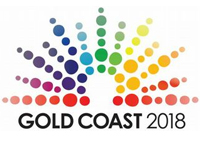
Addbacks to financial statements
Addbacks to financial statements are completed in order to take out personal and extraordinary items of the current operator contained in the statements that distort the true net operating profit of the business.
Where care needs to be taken is that the addbacks are genuine and not just added back in an attempt to increase/overstate the profit level.
Those new to the motel industry are often advised that addbacks should not be included in financial statements, which is quite incorrect. Most, if not all, profit and loss statements provided to a potential buyer of a motel (or any other business) include some form of addback from the owner’s taxation return, generally completed by the vendor’s accountant and/or the vendor and motel broker.
Accountants, valuers, motel brokers and bankers all make addbacks to financial statements that cross their desk. There are various reasons for making addbacks, however at the end of the day, they are made so that the end user of the statements can compare like with like.
Accountants generally include all expenses that they possibly can within a profit and loss statement in order to reduce the net profit of a business for their client’s taxation purposes. Addbacks will then be completed so the financial statements can be used for sale or refinancing purposes. If these addbacks were not completed, a true representation of the trading of the motel business compared to other motel businesses would not be possible.
Most commonly addbacks are made to motel profit and loss statements for expenses of a private/personal nature to the owner or operator, or for items that are extraordinary in nature. Examples include, loan interest payments, owner’s drawings, owner’s superannuation, motor vehicle expenses, rent prepayments, major refurbishment items, etc. Recently it has been noted that other items such as bank charges have been added back more and more by accountants on the basis that each operator’s bank charges will be different. This is not as ideal because one argument is that the new owner will also incur bank charges that may only be slightly different.
The addback of items like chef/cook’s wages has been witnessed but is not practical. Someone is required to prepare meals in a restaurant and if there is no chef/cook, someone will need to do it. To say that the next operator could do this role themselves if they wanted to, is not realistic and would be the quickest route to burnout.
The end user of these financial statements will have a different reason for analysing the figures however all have the same requirement, an accurate net profit position of the motel business. This is then used as a meaningful comparison against similar motel businesses to value the motel, provide a loan for the motel, or sell the motel. A recent example of this was a motel being valued and the owner’s wages were included within the profit and loss statement of $150,000. If this amount had not been added back then the valuation of the motel would have been inaccurate and would have affected the ability of the owners to refinance or sell the business.
Whether a particular addback is legitimate is a constant source of discussion in any industry where businesses are bought and sold. This is largely due to inconsistencies of their use in the past and this situation may not change anytime soon. It is, however, easy to check their accuracy and determine if they are justified and therefore reflect the true net operating profit of the motel business.

AccomNews is not affiliated with any government agency, body or political party. We are an independently owned, family-operated magazine.






